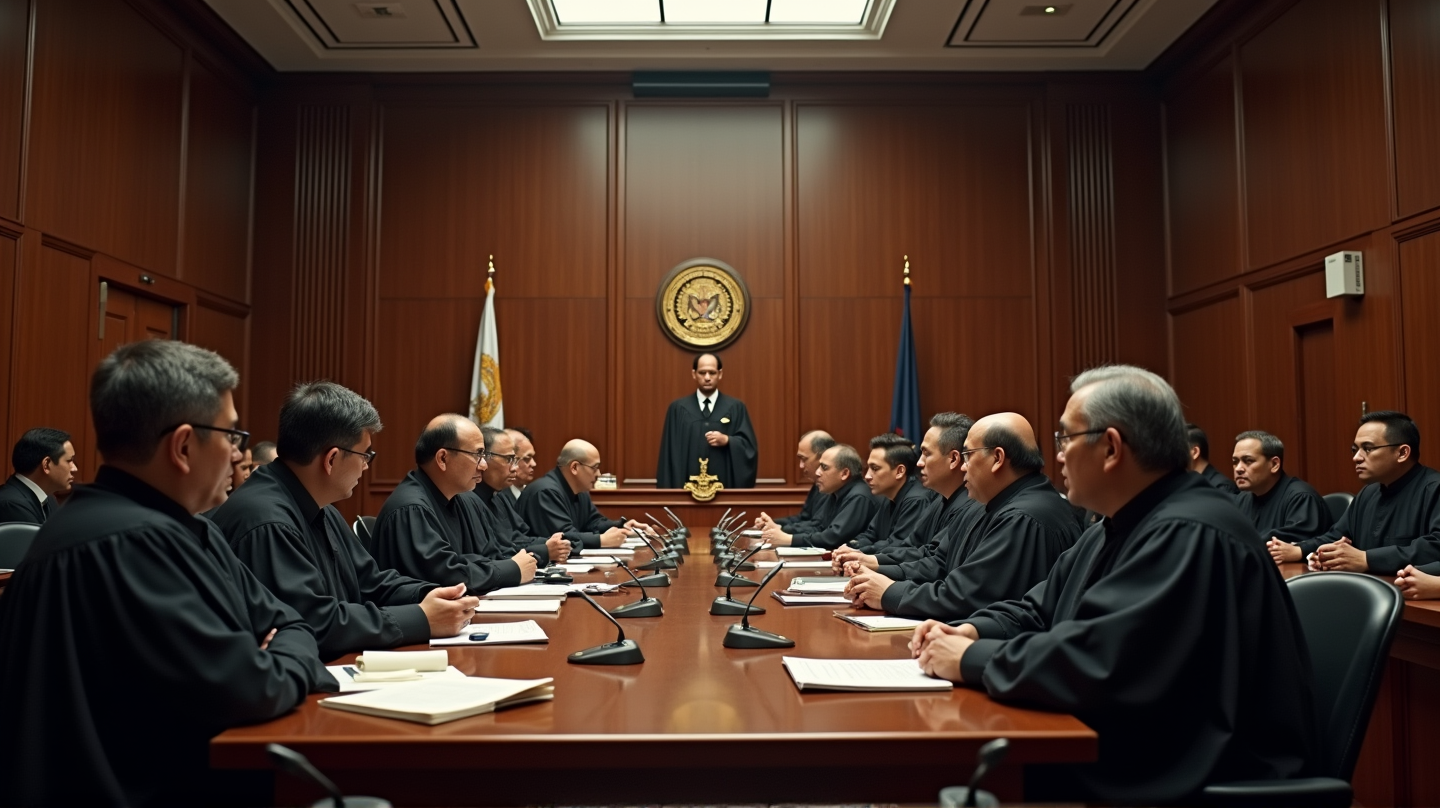Bold Move: Constitutional Court Dismisses Plea Against Education Funding Limits
The Constitutional Court of Indonesia has rejected a judicial review aiming to expand state education funding beyond basic levels, emphasizing its constitutional priorities.

A Defining Verdict
In a landmark decision steeped in legal and educational implications, the Constitutional Court of Indonesia has denied a judicial review challenging the funding limits set by Law Number 20 of 2003 concerning the National Education System (UU Sisdiknas). The dramatic verdict, pronounced by Chief Justice Suhartoyo, has significant ramifications for the trajectory of educational support in the country. “Reject the petitioners in its entirety,” the Chief Justice succinctly declared, backing a perspective firmly rooted in constitutional mandates.
Voices from the Petition
The application sparked by the Indonesian Student League for Democracy (LMID) alongside co-petitioners like Sentia Dewi and Danang Putra Nuryana, sought to challenge restrictions on funding confined to students aged seven to fifteen. Their plea reflected a poignant concern that the constraining stipulation could stifle access to higher education, a fundamental catalyst for personal and national growth. According to their argument, the financial firewall posed a threat to Indonesia’s educational advancement prospects.
A Constitutional Standpoint
However, the court, led by Constitutional Justice Arief Hidayat, robustly defended its stance. Citing the 1945 Constitution, the court reiterated that while all educational levels were indeed state responsibilities, the strategic emphasis on basic education, as entrenched in Article 31, remains unambiguous and non-negotiable. According to VOI.ID, the Court maintained that the constitution does not obligate the state to extend the financial guarantee past the primary education threshold within Article 11.
Balancing Priorities
The state’s role in prioritizing education, as highlighted, resonates with broader policy goals previously affirmed in decision Number 3/PUU-XXII/2024. This past ruling underscored the commitment towards ensuring free basic education. Thus, discounting the petitioners’ claims was crucial in maintaining a clear delineation between basic and higher educational fiscal obligations.
Conclusion: Guiding Future Pathways
By grounding its decision in constitutional exigencies, the court has illuminated its enduring focus on sustainable educational finance. The verdict brings forth a narrative that, while advocating for educational access, emphasizes the judicious stewardship of state resources. As Indonesia navigates its educational future, this decision underlines a steadfast adherence to constitutional principles, ensuring education remains both a right and a structured commitment.
For More Insights
Explore detailed analysis and local perspectives as Indonesia forges ahead in its quest for a balanced educational framework that respects constitutional mandates while aspiring for inclusive academic growth.





